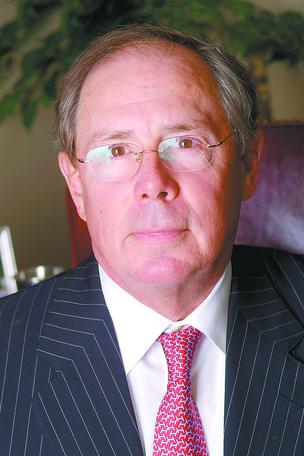Brokerdealer.com Blog update courtesy of Dealbreaker.com and Birmingham Business Journal
For some brokerdealers, like James Holbrook, it is hard to play by the rules, luckily, there are many who do follow the rules.
Sterne Agee Group Inc., one of the fastest-growing brokerages in the South, sued its former chief executive officer over claims he took his corporate credit card on a decade-long spending spree for fishing boats, a yacht, a vacation condominium and ownership in a luxury ski chalet. The complaint against James S. Holbrook Jr., ousted as CEO in May, follows revelations that he’s being investigated by the U.S. Justice Department over the claims… “Holbrook wasted SAG’s corporate assets and used them for his own personal benefit,” the Birmingham, Alabama-based brokerage said in the complaint. His conduct “was beyond how a reasonable person might act in his position,” according to the filing…
Holbrook, starting in 2003, used corporate assets to buy two fishing boats and a Chevrolet Suburban through an entity he formed called Birmingham Broward LLC, according to the complaint. Over the next few years, the executive used company resources in a similar manner to invest in the ski chalet in Deer Valley, Utah, and acquire an interest in Five Star Plantation LLC, a hunting club in Kellyton, Alabama, according to the complaint. The most recent purchase described in the complaint was in March, when Holbrook allegedly diverted company resources to buy a 68-foot (21-meter) luxury fishing yacht.
Holbrook’s lawyer continues to argue, “There is nothing newsworthy about this lawsuit. It simply rehashes the same baseless allegations that have been pending against Sterne Agee and Mr. Holbrook for almost two years and chronicled ad nauseum. In my opinion, Sterne Agee’s time and money would be better spent focused on its clients, employees and shareholders rather than on an attempt to intimidate Mr. Holbrook with these stale allegations. This filing demonstrates that anyone with a typewriter and a law degree can file a suit.”

 The investment banks promised favorable research to Toys “R” Us Inc.
The investment banks promised favorable research to Toys “R” Us Inc. Brokerdealer.com blog update courtesy of extract from the New York Times.
Brokerdealer.com blog update courtesy of extract from the New York Times. Congress directed the Securities and Exchange Commission to finalize the rules by December 2012, but the agency has yet to do so. As it reviews Title III of the JOBS Act, a debate has raged. Supporters say crowdfunding is an innovative way to finance new ideas. Others say the high risk associated with backing early-stage businesses is inappropriate for ordinary investors.
Congress directed the Securities and Exchange Commission to finalize the rules by December 2012, but the agency has yet to do so. As it reviews Title III of the JOBS Act, a debate has raged. Supporters say crowdfunding is an innovative way to finance new ideas. Others say the high risk associated with backing early-stage businesses is inappropriate for ordinary investors. The email was signed by Mr. Schorsch and his three partners at ARC: Bill Kahane, Mike Weil and Peter Budko.
The email was signed by Mr. Schorsch and his three partners at ARC: Bill Kahane, Mike Weil and Peter Budko.
